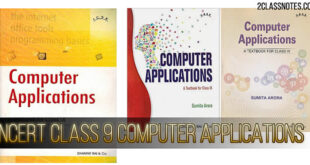Question: Trace the expansion of Democracy across the globe.
Answer: The journey of modern democracy started two centuries ago. During the 19th century , democracy was overthrown and restored several times, in France. The French Revolution that took place in 1789 inspired many struggles for democracy all over Europe.
In Britain, though the progress towards democracy was very slow, it started much before the French Revolution.
Series of political events reduced the power of the monarchy and the feudal lords in the nineteenth centuries.
In United States the British colonies in North America declared themselves independent in 1776. In the next few years these colonies came together to form the United States of America. They adopted a democratic constitution in 1787.
By the beginning of the twentieth century many countries had governments elected by the people, and had political freedom in some measure.
Question: Describe the end of Colonialism.
Answer: Many countries in Asia and Africa were colonies under the control of European nations. People in these countries wanted independence.
India was one of the few colonies where people led a nationalist struggle of non- violence, to liberate the country from the colonial rule. India achieved its independence in 1947. From a subject country India has emerged into a democratic country. India continues to be a democracy.
By the end of the Second World war many of the countries became independent. Ghana was one of the first few countries which became independent. It gained independence in the year 1957. It inspired other African countries to struggle for freedom.
Question: Trace the Political developments in Myanmar.
Answer: Myanmar, formerly known as Burma, gained freedom from Colonial rule in 1948 and became a democracy.
The following are the political developments that took place in Myanmar since 1948:-• A military coup over threw the democratic government in the year 1962.
- In 1990, elections were held for the first time after almost 30 years.
- The National League for Democracy, which was led by Aung San Suu Kyi , won the election.
- The military leaders of Myanmar did not accept the results of the election.
- San Suu Kyi was put under house arrest.
- Political activists were jailed for minor offences.
- People were oppressed and not given any freedom of expression.
- Lakhs of people in Myanmar were driven away from their homes by the military-ruled government.
- The people in Myanmar are still struggling for a democratic government in their country. .
Question: Write a short note on the United Nations and its General Assembly.
Answer: The United Nations is a global association of nations of the world. It promotes cooperation in international law, security, economic development and social equity. The UN Secretary General is the head of the UN.
The UN General Assembly has 192 member countries. Each country has one vote in the UN General Assembly. The General Assembly meets regularly. The President of the Assembly is elected from among the representatives of the member countries. General Assembly is like the parliament where discussions take place and decisions are made. The General Assembly does not have the power to interfere in a conflict between different countries. . .
Question: How does the International Monetary Fund function?
Answer: International Monetary Fund can be considered as one of the biggest moneylenders for the world. It provides loan to countries for their developmental projects.
The IMF has 173 member states. All these states do not have equal voting rights. The vote of each country is weighed by how much money it has contributed to the IMF.
Solution Almost half of the voting power in the IMF is in the hands of the G7 nations. The G7 nations are, the US, Japan, France, UK, Saudi Arabia, China and Russia. The remaining 166 countries have very little say in the decisions the IMF takes.
Question: What is a referendum ?
Answer: A Referendum is ‘a direct vote in which the people are asked to either accept or reject a particular proposal. This may be adoption of a new constitution, a law or a specific governmental policy.’
 Class Notes NCERT Solutions for CBSE Students
Class Notes NCERT Solutions for CBSE Students





